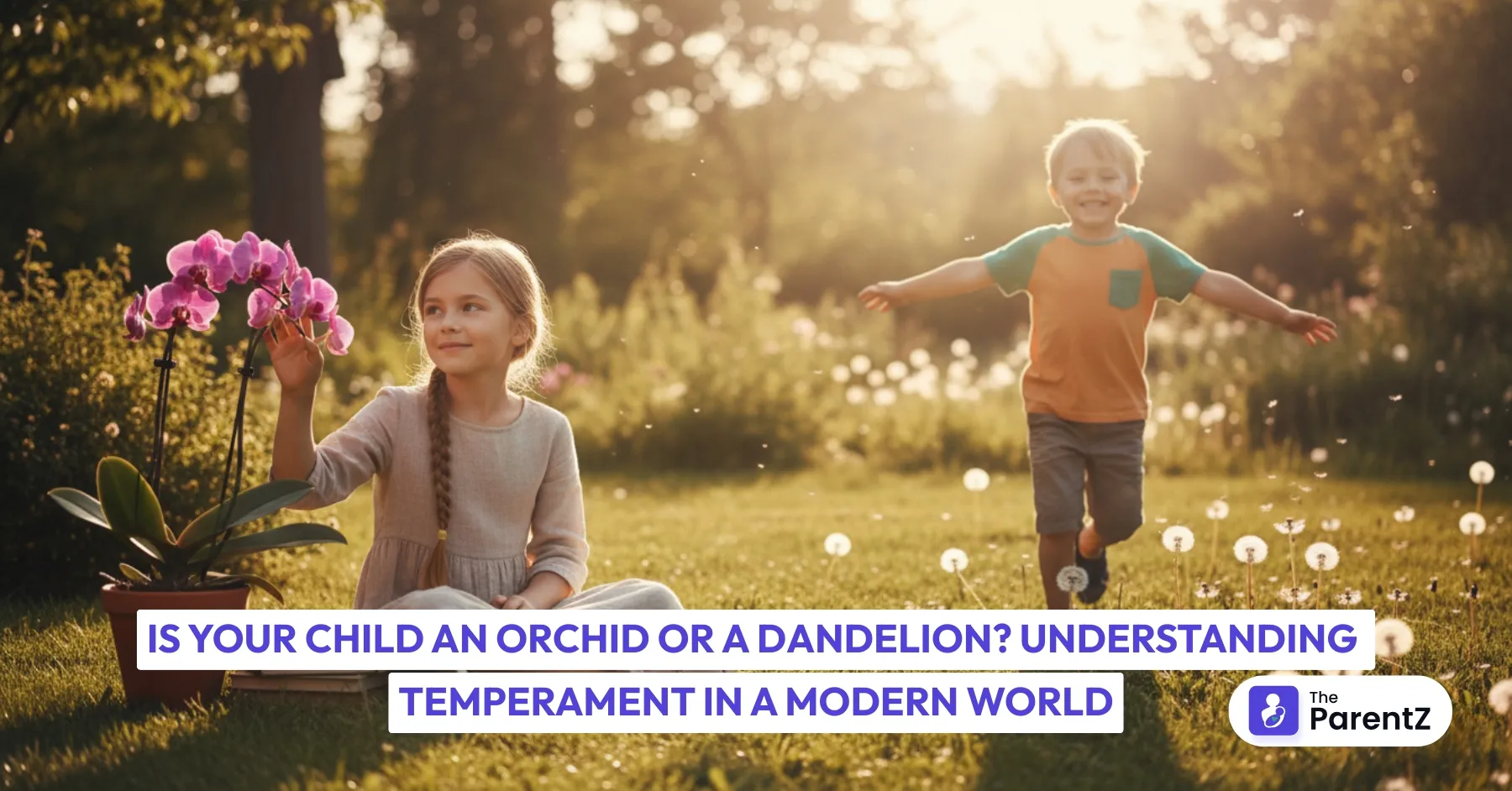Have you ever noticed how some children seem to shine in any situation, while others need extra care and quiet to bloom? Scientists and psychologists have an interesting way to explain this: they talk about children as either "orchids" or "dandelions." These terms help us understand why kids react differently to the world around them and how we can best support each one.
What Are Orchid and Dandelion Children?
The idea comes from research by Dr. Thomas Boyce and others, who noticed children have different levels of sensitivity to their surroundings, based on biology and temperament.
- Orchid children: Like orchids, these kids are beautiful but delicate. They are highly sensitive and reactive to their environment. This means they may be easily overwhelmed by noise, changes, or stress. Yet, when cared for in a supportive, calm, and predictable environment, they can flourish in remarkable ways, showing creativity, empathy, and deep thinking. Orchids need nurturing to thrive.
- Dandelion children: These kids are like dandelions that grow everywhere, even in tough conditions. They tend to be resilient, easy-going, and able to manage stress well. Even when their surroundings are less than perfect, dandelion children usually carry on without much trouble. They adapt well to change and can bounce back quickly from challenges.
Characteristics That Help Spot Each Type
If you see these traits in your child, you might be recognizing their temperament:
| Orchid Children | Dandelion Children |
| Sensitive to noise, light, or crowds | Calm in noisy or new environments |
| May be shy, cautious, or withdrawn | More outgoing, sociable, and adventurous |
| Deep thinkers and often emotionally intense | Less emotionally reactive, steady |
| Need routine and familiar settings | Flexible and adaptable to changing routines |
| Can get easily overwhelmed or stressed | Handle stress and setbacks well |
| Benefit greatly from gentle, consistent care | Do well with typical parenting approaches |
Many Kids Don’t Fit Just One Label
It’s important to understand this is not a strict “either-or” category. Children exist on a spectrum, and many have traits of both orchids and dandelions. Some kids might be mostly dandelion with occasional orchid-like sensitivity, and vice versa. Others can fall in the middle, sometimes called “tulips,” showing moderate sensitivity.
Temperament can also change as children grow, and different situations may reveal different sides of their nature.
Why This Matters in Today’s World
In our fast-paced, overstimulating modern world, understanding these temperaments is more useful than ever. The constant noise, digital screens, social pressures, and changing routines can overwhelm orchids if parents aren’t careful. They might struggle with anxiety or emotional exhaustion without knowing why.
Meanwhile, dandelions may seem easier to raise because they don’t show distress as obviously. But that doesn’t mean they don’t need love and support; just different types or amounts.
Knowing whether your child leans toward orchid or dandelion traits can guide how you parent:
- For orchids: Create calm, predictable environments. Maintain regular routines and provide quiet spaces. Encourage their strengths like creativity and empathy while gently helping them face challenges step by step.
- For dandelions: Provide opportunities to explore, try new things, and adapt. Let them solve problems on their own, but be ready with support when needed.
What Orchid and Dandelion Temperaments Teach Us
This theory also helps remove blame or judgment. You might hear some parents say their "sensitive" child is "too much," or that the "easy-going" kid isn’t trying hard enough. Understanding temperaments reminds us that children are born with different wiring, and none is better or worse.
Parenting is about giving each child what they need to flourish, not forcing every child to fit one mold. Celebrating differences helps children grow with confidence and self-worth.
Conclusion
Understanding if your child is more like an orchid or a dandelion is a tool to look at their needs with kindness, patience, and better awareness. Every child deserves the right kind of care and support tailored just for them.





Be the first one to comment on this story.